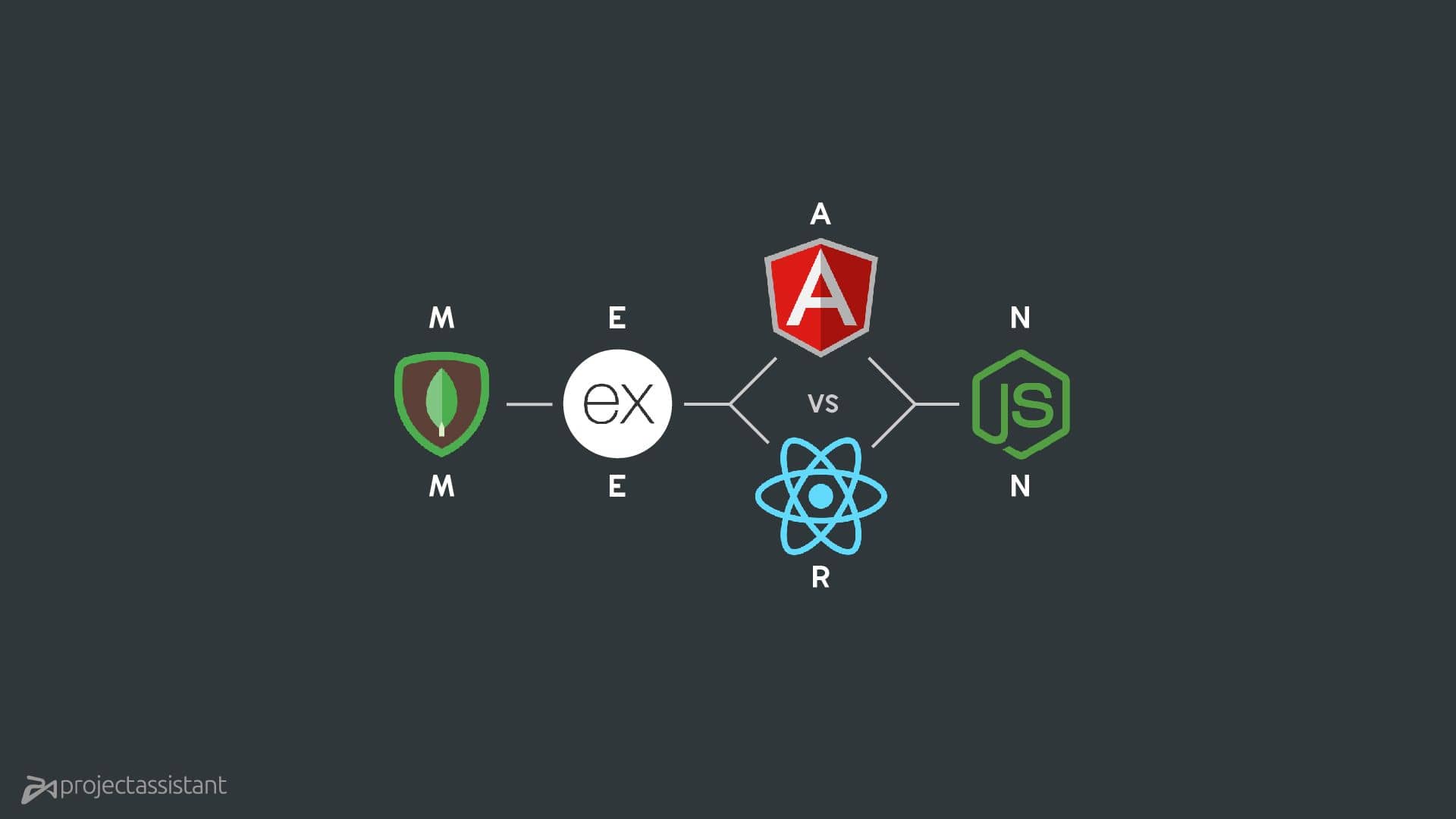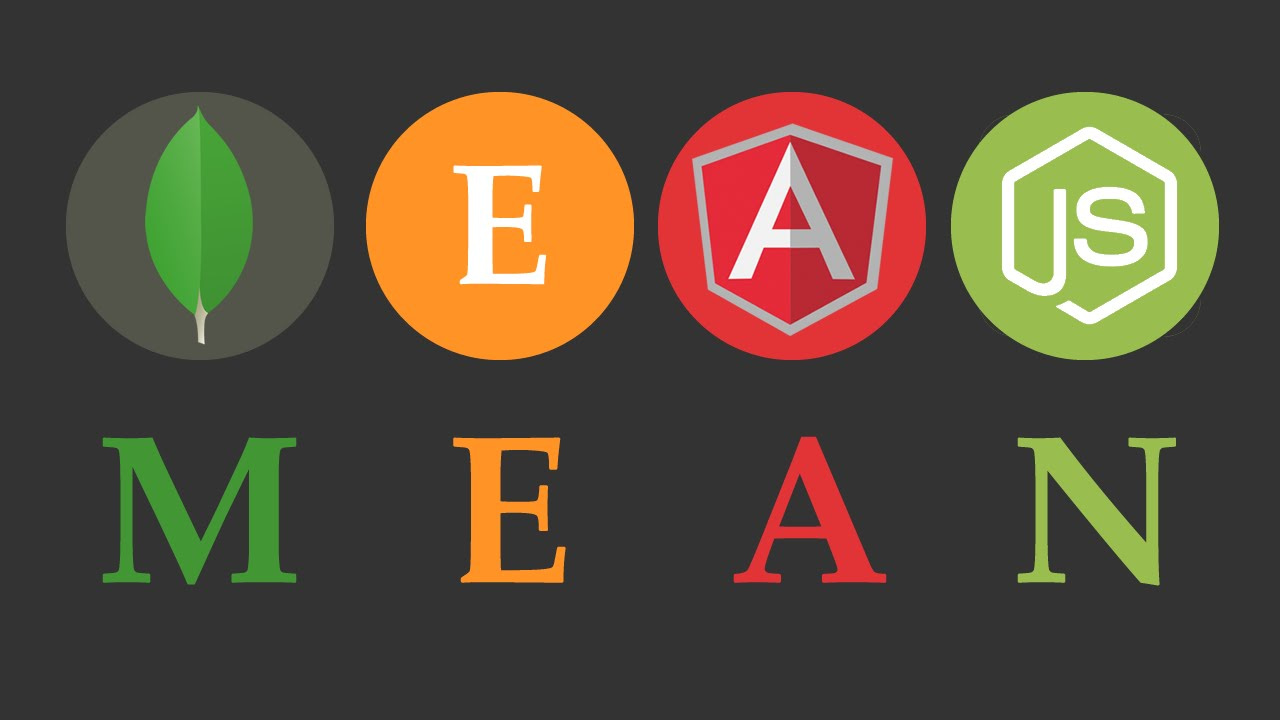
Blog Articles
MERN vs MEAN : Choosing the Right Stack
Table of Contents
In the ever-evolving landscape of web development, selecting the appropriate technology stack is a pivotal decision. Two popular choices that have gained widespread adoption are the MERN vs MEAN stacks. In this comprehensive comparison, we’ll delve into the key components, strengths, and considerations of each stack to help you make an informed decision based on your project requirements.
MERN vs MEAN Stack
The MEAN stack, an acronym for MongoDB, Express.js, Angular, and Node.js, constitutes a powerful combination of technologies for full-stack JavaScript development. This section delves into the distinctive features and advantages of each component within the MEAN stack. From the flexible NoSQL database MongoDB to the robust Angular framework, we explore how these technologies seamlessly integrate to streamline the development process and empower developers to build dynamic and scalable web applications.
Whereas, the MERN stack—MongoDB, Express.js, React, and Node.js—has emerged as a compelling alternative to MEAN. This subsection provides an insightful exploration of each MERN stack component, shedding light on how MongoDB’s NoSQL capabilities, Express.JS’s server-side prowess, ReactJS declarative UI development, and Node.js’s server-side JavaScript runtime collectively contribute to a versatile and efficient web development ecosystem. Discover the unique strengths and considerations that make the MERN stack a popular choice among developers worldwide.
What is MEAN Stack Development?
MEAN (MongoDB, Express.js, Angular, Node.js) is a unified JavaScript-based framework for full-stack development. It integrates MongoDB for NoSQL storage, Express.js for server-side operations, Angular for dynamic front-end experiences, and Node.js for server-side JavaScript execution. MEAN delivers a cohesive and scalable solution for building feature-rich web applications.
1. MongoDB:
MongoDB is a NoSQL database known for its flexibility in data modeling. It stores data in JSON-like documents, making it schema-less and adaptable to changing data structures.
2. Express.js:
Express.js is a minimalist and flexible Node.js web application framework. It provides a robust set of features to build web and mobile applications, facilitating the development of server-side logic.
3. React:
React, developed by Facebook, is a JavaScript library for building user interfaces. It allows developers to create reusable UI components and facilitates the development of single-page applications with its virtual DOM.
4. Node.js:
Node.js is a JavaScript runtime built on the V8 JavaScript engine from Chrome. It enables server-side rendering and efficiently handles asynchronous tasks, promoting the use of JavaScript on both the client and server sides.
Pros and Cons of MEAN Stack:
| PROS | CONS |
| Isomorphic codebase for efficient development. | Potential for spaghetti code due to poor isolation of server and business logic. |
| Cross-platform compatibility simplifies web and mobile app development. | Data partitioning challenges may lead to data loss. |
| Access to extensive open-source libraries enhances development capabilities. | |
| Facilitates the development of real-time and interactive applications. |
What is MERN Stack Development?
MERN (MongoDB, Express.js, React, Node.js) is a popular and flexible choice for modern web development. It combines MongoDB for NoSQL data storage, Express.js for server-side development, React for interactive user interfaces, and Node.js for server-side JavaScript execution. MERN’s versatility empowers developers to create responsive and engaging web applications with a streamlined development process.
1. MongoDB:
MongoDB serves as the NoSQL database in the MEAN stack, offering the same flexibility and schema-less data storage.
2. Express.js:
Express.js, in the MEAN stack, provides a robust framework for building dynamic web applications and RESTful APIs, similar to its role in the MERN stack.
3. Angular:
Angular is a comprehensive front-end framework for building dynamic, single-page web applications. It offers a rich set of tools and features for front-end development.
4. Node.js:
Node.js, as in the MERN stack, handles server-side logic in the MEAN stack, allowing for the use of JavaScript on both the client and server sides.
Pros and Cons of MERN Stack:
| PROS | CONS |
| High performance with ReactJS virtual DOM for fast UI rendering. | Low productivity due to the need for third-party tools. |
| Cost-effective with shared JavaScript for back-end and front-end development. | More suitable for small to mid-sized projects; less optimal for large-scale applications. |
| Native experience for users with React Native for mobile app development. |
MERN vs MEAN stack Comparison
| MEAN | MERN | |
| Front-end Framework | AngularJS | ReactJS |
| Flexibility | Angular offers a more opinionated framework, providing a structured approach to development. | More flexibility due to the combination of separate libraries. |
| Learning Curve | Angular has a steeper learning curve but offers a more comprehensive set of features out of the box. | Generally considered easier to learn, especially for developers familiar with JavaScript. |
| Productivity | Higher productivity for developers familiar with Angular. | Lower productivity, requires additional third-party tools. |
| Performance | Lower UI rendering performance. | Faster UI rendering with ReactJS virtual DOM. |
| Use Cases | Preferred for large-scale applications with an opinionated approach. | Well-suited for single-page applications and small to mid-sized projects. |
Conclusion
The choice of MERN vs MEAN stacks depends on various factors such as project requirements, team expertise, and development preferences. If flexibility and simplicity are paramount, MERN might be the preferable choice. On the other hand, if you prioritize a comprehensive front-end framework and strong modularity, MEAN, with Angular, could be the ideal fit. Both stacks provide the necessary tools to develop modern, high-performance web applications, making it essential to align your choice with the specific needs of your project.

Get a Fast Estimate on Your Software Development Project
We are committed to delivering high-quality IT solutions tailored to meet the unique needs of our clients. As part of our commitment to transparency and excellence, we provide detailed project estimations to help our clients understand the scope, timeline, and budget associated with their IT initiatives.
FAQs
MEAN: Utilizes Angular for front-end development.
MERN: Employs React for front-end development.
MEAN: Generally considered more suitable for enterprise-level architecture.
MERN: Preferred for smaller applications and single-page projects.
MEAN: Supports hybrid mobile app development.
MERN: Enables the building of mobile applications with React Native.
MEAN: Preferred for large-scale applications with its opinionated and standardized approach.
MERN: More suitable for single-page applications and smaller to mid-sized projects.
Related Blog Posts









